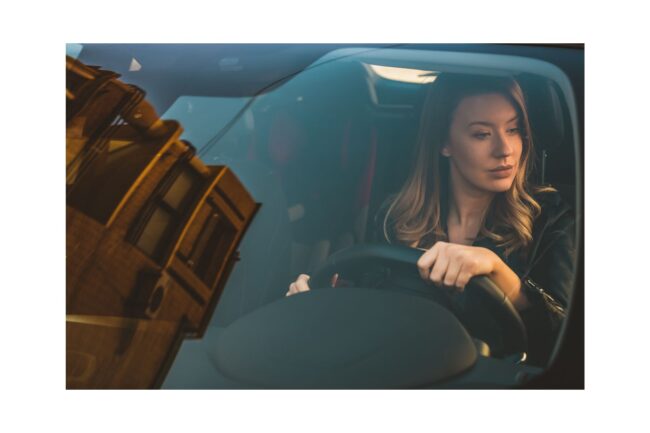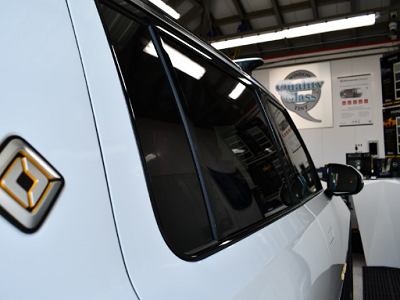In the realm of automotive maintenance, one critical aspect often overlooked is the integrity of a vehicle’s glass components. The importance of auto glass repair extends far beyond mere aesthetics, delving into the realm of safety and overall vehicle functionality. While a seemingly innocuous crack or chip may be dismissed as a minor inconvenience, the repercussions of neglecting such issues can be severe.
The windshield, in particular, serves as a crucial safety feature, providing structural support to the vehicle and acting as a barrier against external elements. A compromised windshield can significantly diminish the structural integrity of the car, posing a potential hazard during collisions or accidents. Moreover, a damaged windshield can impede the effectiveness of airbags, further escalating the risk for occupants.
This blog delves into the intricacies of auto glass repair, shedding light on why swift attention to such issues is imperative for ensuring not only the longevity of the vehicle but, more importantly, the safety of its passengers. By understanding the nuanced role of auto glass in the overall safety framework, drivers can make informed decisions to protect themselves and others on the road.
The Structural Role Of Windshields
Windshields are not merely transparent barriers; they play a pivotal role in the overall structural integrity of a vehicle. Engineered to withstand considerable stress, a properly functioning windshield contributes significantly to the framework, preventing the roof from collapsing during accidents. Its laminated design ensures that, in the event of a collision, the glass holds together, reducing the likelihood of occupants being ejected from the vehicle. Understanding the structural importance of windshields emphasizes the critical need for prompt auto glass repair or replacement, reinforcing the vehicle’s ability to endure and protect in challenging circumstances.
Regulatory Compliance And Auto Glass
Ensuring regulatory compliance in the realm of auto glass is a critical aspect of maintaining road safety standards. Various regulations dictate the condition and specifications of vehicle glass to safeguard both drivers and pedestrians. Adhering to these regulations not only promotes a safer driving environment but also helps vehicle owners avoid legal complications and penalties associated with non-compliance.
 Thickness and Composition: Regulations specify the minimum thickness and composition requirements for auto glass to ensure structural integrity.
Thickness and Composition: Regulations specify the minimum thickness and composition requirements for auto glass to ensure structural integrity.- Visible Light Transmittance (VLT): Guidelines govern the level of light that must pass through the glass, influencing visibility and safety.
- Impact Resistance Standards: Auto glass must meet specific standards to withstand impacts and minimize the risk of shattering during accidents.
- Proper Installation: Regulations often outline proper installation procedures, emphasizing the importance of secure fitting for the glass to function as intended.
Understanding and adhering to regulatory standards regarding auto glass are integral components of responsible vehicle ownership. By prioritizing compliance, drivers contribute to a safer and more secure driving environment while also avoiding potential legal consequences. Regular inspections, prompt repairs, and adherence to established guidelines collectively play a crucial role in upholding the safety and regulatory standards associated with auto glass.
Impact On Airbag Deployment
The relationship between a vehicle’s windshield and the effective deployment of airbags is intricate yet crucial. An undamaged windshield provides necessary support to the passenger-side airbag, ensuring it deploys optimally during a collision. In the absence of structural integrity, a compromised windshield may fail to withstand the force exerted by an inflating airbag, rendering it less effective in protecting the occupants.
Recognizing this symbiotic relationship underscores the importance of addressing windshield damage promptly, not only for the glass itself but as a fundamental component influencing the overall safety features of the vehicle.
The Crucial Aspect Of Auto Glass Safety
Auto glass safety goes beyond aesthetics, representing a commitment to protecting lives and preserving a vehicle’s structural integrity. The windshield, a crucial safety component, acts as a barrier during accidents and influences airbag deployment. Timely addressing of cracks and chips prevents minor issues from becoming safety hazards. Neglecting repairs can lead to a ripple effect, impacting other vehicle systems.
Embracing advanced technologies like laminated and smart glass enhances impact resistance and visibility. While DIY solutions may be tempting, professional auto glass repair ensures comprehensive safety. Recognizing insurance implications highlights the financial and safety incentives for prompt action. Advocating for increased awareness empowers drivers to prioritize auto glass safety, contributing to a safer driving environment. Ultimately, a holistic perspective on auto glass safety ensures responsible vehicle ownership and fosters a culture of safety on the roads.
The Ripple Effect Of Neglecting Repairs
Neglecting auto glass repairs may seem inconsequential initially, but the repercussions extend beyond the visible cracks or chips. The ripple effect of delaying repairs can have far-reaching consequences that compromise both the safety and longevity of the vehicle. Understanding these consequences is crucial for every vehicle owner.
- Compromised Structural Integrity: Ignoring even minor damages allows them to worsen over time, compromising the structural integrity of the vehicle. This can escalate the severity of accidents and increase the risk of injuries.
- Impaired Visibility: Cracks and chips hinder visibility, especially in adverse weather conditions, leading to a higher likelihood of accidents. Reduced visibility can also result in traffic violations and increased safety risks for both the driver and others on the road.
- Higher Repair Costs: What starts as a small crack can quickly escalate, requiring more extensive repairs or even a complete windshield replacement. Delaying repairs often leads to higher costs in the long run.
- Legal Consequences: Driving with a damaged windshield may violate traffic laws and regulations. In some jurisdictions, it could result in fines or other legal consequences, adding an extra layer of concern for vehicle owners.
The ripple effect of neglecting auto glass repairs goes beyond the surface-level inconvenience. It permeates into the safety, functionality, and financial aspects of vehicle ownership. Timely attention to these issues not only ensures the well-being of the occupants but also helps in avoiding more extensive and costly repairs down the road. Prioritizing auto glass maintenance is an investment in both safety and the overall health of the vehicle.
Cracks And Chips: The Silent Threats
Cracks and chips in auto glass may appear minor, but they harbor silent threats that can compromise the safety of both the vehicle and its occupants. What may start as a small imperfection can quickly escalate, weakening the structural integrity of the glass over time. In the event of an accident, the presence of these seemingly innocuous flaws can significantly increase the risk of injury as the compromised glass may shatter or fail to provide adequate protection. This silent deterioration highlights the urgency of addressing even the smallest cracks or chips promptly, preventing them from evolving into substantial hazards with potentially severe consequences.
Insurance Implications And Auto Glass Claims
Navigating the realm of auto glass repairs goes beyond ensuring the vehicle’s aesthetic appeal and structural integrity; it extends to the intricacies of insurance implications and claims. Understanding the relationship between auto glass issues and insurance is essential for drivers seeking comprehensive coverage and prompt resolutions to their repair needs.
 Comprehensive Coverage Inclusion: Auto glass repairs and replacements are often covered under comprehensive insurance policies, providing financial support for damages caused by factors other than collisions, such as vandalism, weather events, or falling objects.
Comprehensive Coverage Inclusion: Auto glass repairs and replacements are often covered under comprehensive insurance policies, providing financial support for damages caused by factors other than collisions, such as vandalism, weather events, or falling objects.- Deductibles and Coverage Limits: Familiarizing oneself with the deductible amounts and coverage limits specific to auto glass claims is crucial. Some policies may offer full coverage, while others may require the policyholder to pay a deductible.
- Effect on Premiums: Making an auto glass claim typically does not result in increased insurance premiums, as these claims are often considered no-fault incidents. This aspect can alleviate concerns about long-term financial repercussions.
Navigating the insurance landscape concerning auto glass claims demands a thorough understanding of policy details. From assessing comprehensive coverage inclusion to grasping the impact on premiums, informed decision-making ensures a smoother process when addressing auto glass issues. By staying aware of the nuances of insurance implications, drivers can confidently pursue necessary repairs, knowing they have the support of their insurance coverage without compromising their long-term financial stability.
Weathering The Elements: Beyond Aesthetics
Auto glass serves as a protective barrier against the elements, ensuring a comfortable and secure environment within the vehicle. Beyond aesthetics, the condition of the glass directly influences the occupants’ safety and well-being. Cracked or damaged glass compromises the integrity of this barrier, allowing external elements such as rain, snow, or debris to infiltrate the interior. Apart from the discomfort, exposure to these elements can impede visibility, hinder the effectiveness of defrosting mechanisms, and even damage the vehicle’s interior. Recognizing the broader implications of compromised auto glass emphasizes the need for timely repairs, safeguarding not only the aesthetic appeal but also the functionality and safety aspects associated with the vehicle’s glass components.
prioritizing auto glass maintenance transcends mere aesthetics; it is a commitment to safety, structural integrity, and overall vehicle well-being. At Quality Auto Glass Tint, our dedication to transforming your auto glass aspirations into reality is unwavering. With a team boasting over two decades of industry expertise, we ensure excellence in every service, be it window tint, paint protection, windshield repair, or replacement.
Our commitment extends to Roseville, where we operate from 9110 Fairway Dr, Roseville, CA 95678. Contact us at (916) 888-8495 or Roseville@qualityautoglasstint.com, Monday through Saturday, 9 am to 5 pm. Trust Quality Auto Glass Tint for unparalleled service and a commitment to your automotive glass needs.
Experience the difference with Quality Auto Glass Tint – your trusted partner in auto glass excellence. Contact us today at (916) 888-8495 or Roseville@qualityautoglasstint.com to schedule your appointment. Don’t compromise on safety or style; let our experienced team elevate your driving experience with top-notch auto glass services. Visit us at 9110 Fairway Dr, Roseville, CA 95678, and discover why Quality Auto Glass Tint is your go-to destination for all your auto glass needs.




